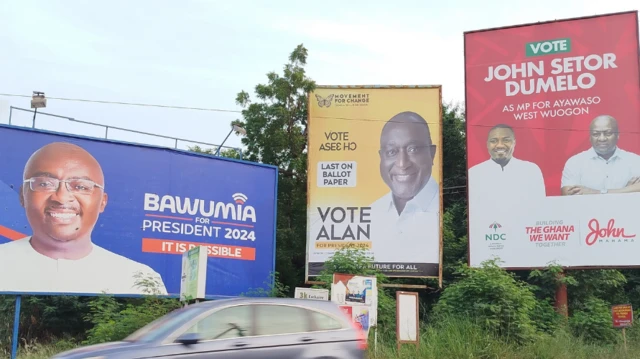Ghana is known for many things—its culture, its people, and of course, its Jollof. But during the 2024 presidential election, Civic Hive witnessed something even more remarkable: a dynamic fusion of democracy, tradition, and civic participation.
In a political twist that feels both nostalgic and symbolic, Ghana elected former President John Mahama back into office. Having previously served from 2012 to 2017, Mahama’s return adds a layer of intrigue to the democratic process. Much like the United States’ return to a former president, Ghana’s decision has sparked conversations about continuity versus change—do citizens prefer the familiarity of a known leader or the hope that comes with fresh faces? But the 2024 election wasn’t only about going back to a political ex—it was also about breaking new ground.
In a historic milestone, Ghana elected its first female vice president, Professor Jane Naana Opoku-Agyemang. A distinguished academic, former Minister of Education, and the first female vice-chancellor of a public university in Ghana, her victory marks significant progress for gender representation in leadership. Her presence on the ballot—and now in office—sends a powerful message to young girls across Ghana and the continent: leadership is not defined by gender.
Election Day: Calm, Committed, and Communal
The atmosphere on December 7th was one of calm anticipation. Ghanaians lined up at polling units as early as 5:00 AM, with voting commencing at 7:00 AM. Citizens waited patiently and peacefully, driven by a strong sense of civic duty and hope for their country’s future.
Polling units across the country reflected Ghana’s unique approach to public engagement. In many places, churches doubled as voting centers, blending spiritual spaces with civic activity. This practical use of communal institutions reflects a deep trust in local structures and a collective commitment to inclusive participation.
Transparency, Accountability, and Media Culture
Party agents were visibly active throughout the process, monitoring voting and counting to ensure transparency and accountability. Their presence was a reassuring sign of electoral integrity.
One of the more interesting observations was the difference in media intensity compared to other West African nations. While Nigeria’s election coverage is typically robust and often overwhelming, Ghana’s media approach felt more restrained. Updates were consistent but measured, offering a glimpse into the country’s calmer approach to political engagement.
Democracy Meets Daily Life
Unlike countries where elections bring everything to a standstill, Ghana pulsed with normalcy. The streets buzzed with activity—buses and taxis moved freely, shops opened, and people went about their day while also fulfilling their democratic responsibility. This coexistence of everyday life and civic action reflects a mature democratic spirit: voting as an essential part of life, not a disruption to it.
Looking Ahead
Ghana’s 2024 election was a celebration of resilience, order, and participation. From early morning voters to the smooth integration of technology, the process reflected a country determined to shape its own future. We’ll continue to monitor developments and final results on www.ghanaelections.budgit.org, a platform created to enhance transparency and public access to electoral data.
Democracy in Ghana is alive and well; carried on the shoulders of its engaged and determined citizens.
